Beech Holdings has breathed new life into the development on Great Ancoats Street including fitting a sustainable heat recovery system into the building leaving it as passive as possible in its emissions.
Now fully occupied, Piccadilly Village completes with a gross development value (GDV) of £6.1 million and is now home to young professionals and graduates.
The building has been finished with high-specification appliances, fully fitted furniture, long-lasting Amtico flooring and includes all utilities in the rent, as well as hyper-fast Wi-Fi.
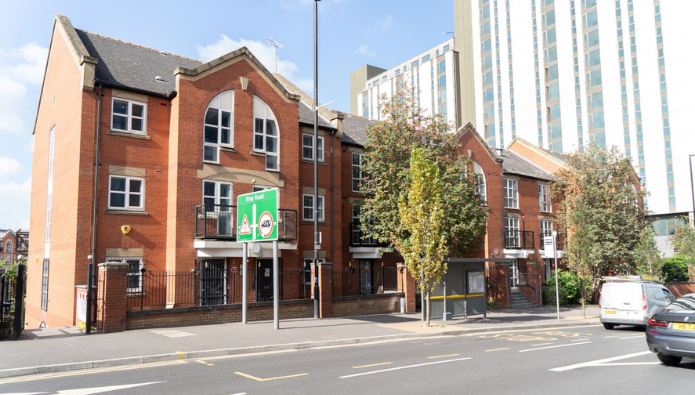
Stephen Beech, chief executive officer of Beech Holdings, comments: “This was another unloved building we’ve managed to completely overhaul, sustainably and appropriately. The site really is quite an oasis, offering tranquillity in the heart of the City.”
“We will retain this building and manage it ourselves with our lettings arm, Manchester Apartments. We’ve already fully let this building and welcomed many international tenants. This is great to see as they have such an important role in the economic success of Manchester and clearly demonstrates the feelings of safety people are experiencing now the pandemic is more under control.”
The original site is located in an attractive position on the Ashton Canal, offering a small green sanctuary in the City Centre.
Beech Holdings lettings arm, Manchester Apartments, will manage the building and it is the fourteenth project delivered in the City for Beech Holdings, bringing over 1000 apartments to Manchester.
Beech Holdings has a history of taking on unloved buildings and regenerating them into modern, tenant-inspired homes with a strong focus on placemaking, community creation and sustainability.
The company currently has over 600 apartments and seven developments under construction with flagship projects, such as Ancoats Gardens, on Rochdale Road, and Piccadilly Warehouse, located on Bloom Street, which is one of the last remaining Grade-II listed warehouses in Central Manchester. Both developments will offer high-quality residential homes for Manchester residents.
Plans for Glasgow’s ‘most sustainable development’ underway
Developer Nevis Properties has submitted a £10 million plan for what it believes will be Glasgow’s most sustainable residential properties.
The proposal for 131 Minerva Street in Finnieston – a former brass foundry currently used as offices – is just a stone’s throw away from the main venue for COP26 and contains a host of features placing it at the sharp end of environmentally-friendly residential developments.
Sustainability and residents’ physical and mental wellbeing are at the heart of architect HAUS Collective’s designs for a mixture of 64 one, two and three-bedroom flats – all of which will feature their own private balcony.
Nevis Properties has actively gone beyond the sustainability requirements set out in Glasgow’s City Development Plan, adopting a low-carbon focus with an emphasis on energy-efficient materials and green technologies.
This includes a high efficiency centralised combined heat and power (CHP) system which makes use of ‘reclaimed heat’ to reduce energy use, as well as supplementing power to six electrical vehicle chargers. The Minerva Street development also features a rooftop photovoltaic solar panel array to provide free clean energy to offset conventional power consumption in the building.
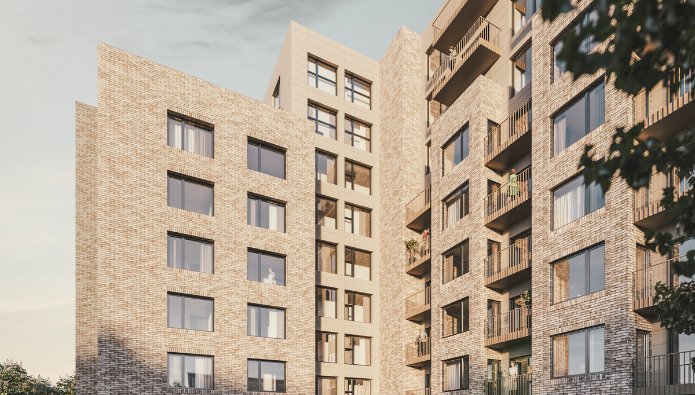
HAUS has developed three separate amenity gardens including a seventh-floor rooftop residents’ terrace with views across the south side of Glasgow. All three amenity decks have been designed to help build a sense of community – with an outdoor exercise space on one terrace and an area for communal dining on another.
The site, right next to Exhibition Centre train station, was chosen due to its ‘excellent’ transport connectivity, which includes multiple bus links and a walkable commute to the city centre. The development features reduced car parking as a consequence to encourage sustainable living.
Nevis Properties also installed six active EV charging stations – almost 30% of spaces at the development – to acknowledge an ever-evolving shift towards green energy and sustainable living. The other spaces are ‘EV-ready’, with ducting installed so charging points can be added in future if required.
The developer is focused on regenerating brownfield sites to help to address Glasgow’s housing shortage, and by providing attractive accommodation in and around the city centre, director Marc Taylor believes there will be less need for development on finite Greenbelt land.
A selection of properties at Minerva Way will be priced at a level to cater for first time buyers, as well as attract young professionals looking to bring their talent to the city. An Economic Impact Assessment carried out on behalf of Nevis Properties estimates the development could be worth around £2 million per year to the city’s economy, and more than £2.6 million to the regional construction industry.
Taylor says: “For Glasgow to continue to evolve as a dynamic, contemporary city, and recover from the pandemic, there is a need to create quality housing in prime locations which enhances the urban fabric of the city and attracts the very best talent.”
“Finnieston is incredibly attractive to young professionals and first-time buyers because it’s walkable to the city centre and has some of Glasgow’s best bars and restaurants. As it stands there is a distinct lack of choice for quality new build accommodation and extremely high demand for second-hand properties within the area.”
He adds: “As Glasgow becomes ever more popular with larger businesses, there is a growing need to meet the surging demand for premium living accommodation at a price point which fits the needs of buyers and renters. That’s why we want to develop a property which will not only develop a real community, but also become the gold standard for sustainable developments in future.”
New partnership to deliver ‘unique’ Lake District resi scheme
A UK specialist in custom-built homes has joined forces with a leading manufacturer of timber frame properties for a unique development in the Lake District.
Hugr Homes, a north-west based developer, is behind Wellbank, a 50-plot development on land on the edge of the village of Bootle, West Cumbria, with views of the Western fells.
As part of its aim to create a development of eco-friendly and sustainable homes, it has partnered with Fleming Homes, which is based in the Scottish Borders and has more than 35 years’ experience in the design and manufacture of bespoke, timber frame homes.
Joe Higginson, founder and managing director of Hugr Homes, comments: “We were keen to work with a timber frame company to help the process for the buyers of plots at Wellbank and it was clear that Fleming Homes had the right product and the experience in this sector.”
“The Fleming Homes team will provide guidance and expertise to plot buyers to help in the design and specification of their homes in this beautiful part of the Lake District National Park, which is just 10 minutes from the Cumbrian coast.”
Custom build is ideal for people who want to create their own home with minimal risk because it enables them to have control of the design and specification to suit them and their budget, while benefiting from the expertise of a developer.
Hugr Homes offers a range of plots with planning permission and ensures buyers can create homes that are thermally efficient and sustainable.
The timber frame superstructures are quick to erect – the average four-bed family home can be erected to wind and watertight in two to three weeks – which results in considerable efficiencies when it comes to managing build schedules.
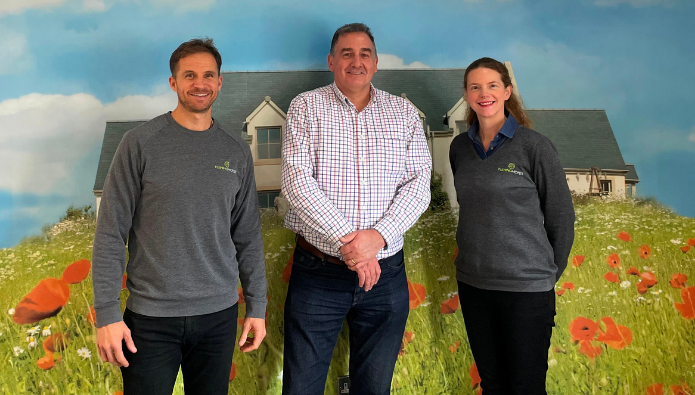
Modern methods of construction and offsite manufacture also ensure homes are produced within a factory environment to exacting standards.
At Wellbank, both companies have designed a range of homes to suit the site and because their approach is flexible, buyers have multiple options to achieve their ideal home.
“Custom building your own home can seem a little more daunting than it really is, but we help to make the process as smooth as possible,” says Higginson.
“If you buy a new home in the UK, your choice is limited to the designs the national house builders decide you should have, but with a custom build, the buyer is in charge of room layouts, specifications and the green and smart elements to boost the eco-credentials.”
“It’s far more economical than many people believe and they may be surprised to find a custom-build option is well within their budget. It’s an option that is well-established across Europe and we want to see the UK catch up.”
Wellbank, which is about one mile away from Bootle railway station and less than half an hour from Broughton in Furness, will be one of the largest custom build schemes in the UK, with 18 plots available in phase one.
As well as accommodating bungalows and detached houses on spacious plots, the site will also have cycleways and pathways and particular attention is being paid to the open space and circulation routes, with wide pathways linking separate parts of the site.
Hugr Homes is already in discussions with interested buyers from as far away as London, while two plots of the first phase are already reserved.
Sarah Mathieson, managing director of Fleming Homes, adds: “We both align on the idea of helping more people live in higher quality homes. What Fleming Homes is keen to do is open up the possibility of self and custom-building as a real option to more people to achieve more low-carbon, energy-efficient, quality homes.
“It’s about giving more choice for homeowners to live their lives in homes that meet their aspirations for living and in homes that are ultimately fit for the future.”
Is Cambridge leading the race in sustainable housing?
With consumer housing trends focused on personalisation and the overriding trend on sustainability, modular homes could be the future, according to real estate consultant Bidwells.
House by Urban Splash has now become the first to deliver a large-scale neighbourhood using modular technology in Cambridgeshire at Inholm, Northstowe.
Urban Splash is a real estate innovator, having launched its first modular housing concept in 2016 – and were among the first in the UK to do so.
The 43 homes were designed on a computer by the buyer, built in a factory and constructed on-site, allowing everyone the chance to become an architect. Buyers could configure the floorplan of their homes, choose the number of bedrooms and pick their preferred bathroom layouts.
The first 43 of 406 homes have now been constructed using these Modern Methods of Construction (MMC).
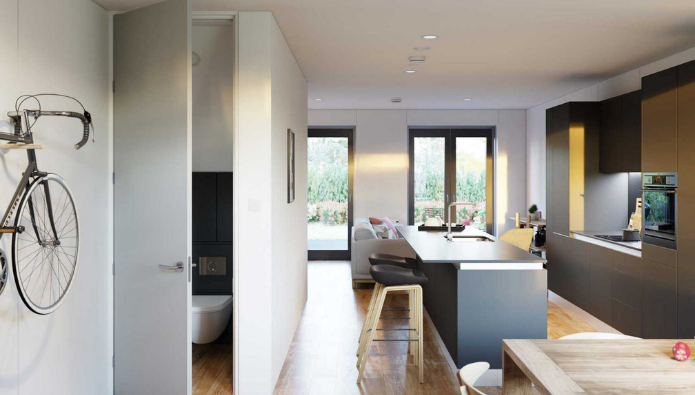
The three-storey townhouse range is precision-built in the company’s factory, which produces significantly less waste and has highly-rated insulation performance, retaining heat in winter and maintaining a cooler temperature in the summer.
The loft layouts are something normally seen only in city centres, giving buyers the flexibility to choose to live or sleep on whichever floor suits them best. According to Bidwells, this trend for personalisation already permeates our culture, especially when you can also offer such sustainable and futuristic design.
Inholm will be located next to two neighbourhood waterparks, landscaped pocket parks, play areas, an outdoor gym, cycle routes and a market hall, civic hub and new workspaces. Eventually, Northstowe will have its own vibrant town centre.
David Bentley, partner at Bidwells’ Cambridge residential office, says: “The buyers we are seeing at Northstowe are pioneers, believing in something in its early stages, confident in its potential and place in the world. We always see innovation flourishing in difficult periods, with Cambridge leading the way.”
You can view Bidwells' full blog here.








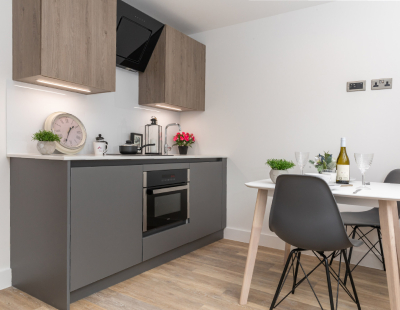
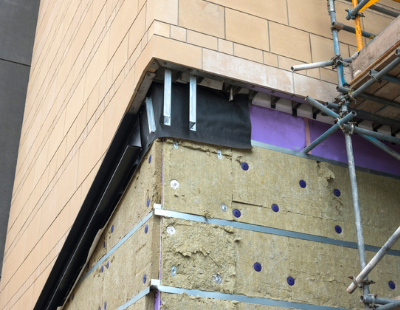
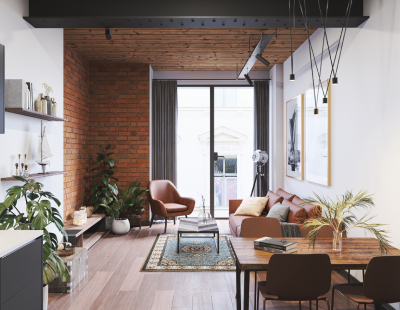


.png)

.jpg)








Join the conversation
Be the first to comment (please use the comment box below)
Please login to comment